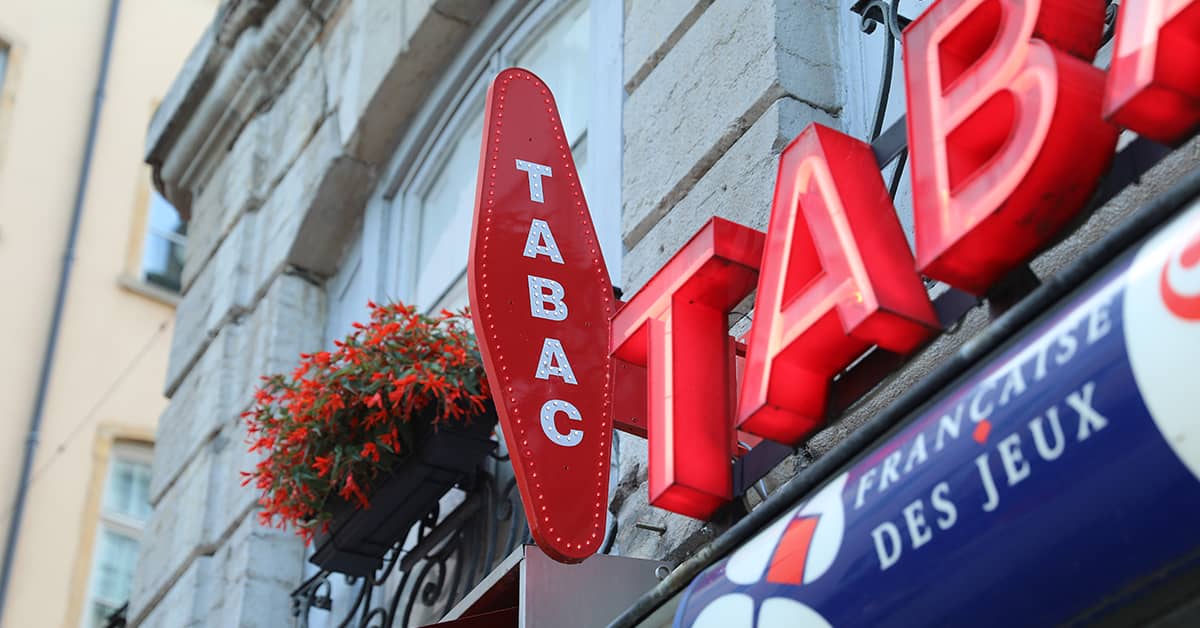French neobank Nickel partners with smokeshops instead of building a traditional network of brick-and-mortar branches.

French neobank Nickel is shaking up branchless banking by partnering with local smoke shops to sign up customers searching for cheaper service.
Monzo, Revolut, N26—these are among the once-promising European online, or ‘neo’, banks that have amassed large user bases but seem unable to make money with their bare-bones account services. They could take a lesson from Nickel, which has grown by serving the unbanked and is eking out profits even though its clients don’t live in the chic redoubts of Paris.
In 2019, Nickel, a BNP Paribas subsidiary, recorded a €1 million ($1.2 million) profit. Last year, that jumped to €5 million. Its secret sauce? You pay for what you get.
“Our offer has a price,” says Marie Degrand Guillaud, deputy director of the bank. Whereas competitors promise free services, Nickel asks new customers to pay €20 a year, plus fees for withdrawing money.
The bank, created in 2014, is very cost efficient. It doesn’t maintain an expansive branch network. Instead, it has an agreement with tabacs, the French tobacconists that double as newsstands and coffee shops; customers may enroll online or in a nearby store, then do all their banking at the tabac. Early on, Nickel’s founder signed an exclusive partnership agreement with the association that represents tabac owners, which holds 5% of Nickel’s stock. In 2016, 2,000 were linked to the startup; today, the total is 6,000, giving Nickel the third-biggest distribution network in France, serving 1.9 million customers.
That network is also the foundation of the bank’s marketing strategy. While other neobanks pay a lot to acquire young, digitally savvy customers, Nickel relies on word of mouth.
“The shop owner informs loyal customers and says, ‘You know that I am a banker now,’ says Guillaud. “The customer fills in his friends, and that’s how we open 40,000 new accounts each month.”
One-third of Nickel’s customers previously didn’t have a bank account, partly, according to Guillaud, because of price. The average French bank account costs €215 a year, she says; Nickel’s average offer is just €60—some €40 in fees on top of the €20 to open the account. Another third of Nickel account holders are cost-conscious consumers who were looking for a cheaper alternative to their accounts with traditional banks. The last category are holders of traditional banks accounts who wanted a second bank card that lets them buy on the internet, use their card in stores, or even when traveling abroad.
Cross-Border Service
Last fall, Nickel launched a new application with the money-transfer providers Ria Money Transfer and Monisnap that allows customers to access their accounts abroad and send and receive money in 150 foreign countries more cheaply than through an account with a traditional bank.
“We have immigrant customers; Covid-19 prevents them from traveling, but they still need to send remittances back to their families,” says Guillaud. So, Nickel created a simplified tool to transfer money. The new app aims to serve other groups of customers as well. “Imagine that you have a son studying in Shanghai. He needs money now. With this, you can quickly send €200.”
While neobanks like the UK’s Tide and Starling are trying to extend their customer base to small businesses, which are deemed to be more lucrative, Nickel plans to stick with its popular base, building its business by extending into other European countries. Its first Spanish accounts opened in December with the help of small stores that sell lottery tickets, and negotiations are ongoing in Portugal and Belgium.
As long as Nickel successfully develops its strategy, parent BNP Paribas says it won’t interfere.
“They let us breathe,” says Guillaud, “while also helping us become professionals. Our industry is heavily controlled. We learn with BNP Paribas how to manage risks and navigate complex regulations.” That includes keeping an eye out for rogue customers and possible terrorists. The new client must show identity papers at the store where they sign up; Nickel’s algorithms then send alerts about any suspicious transactions.



